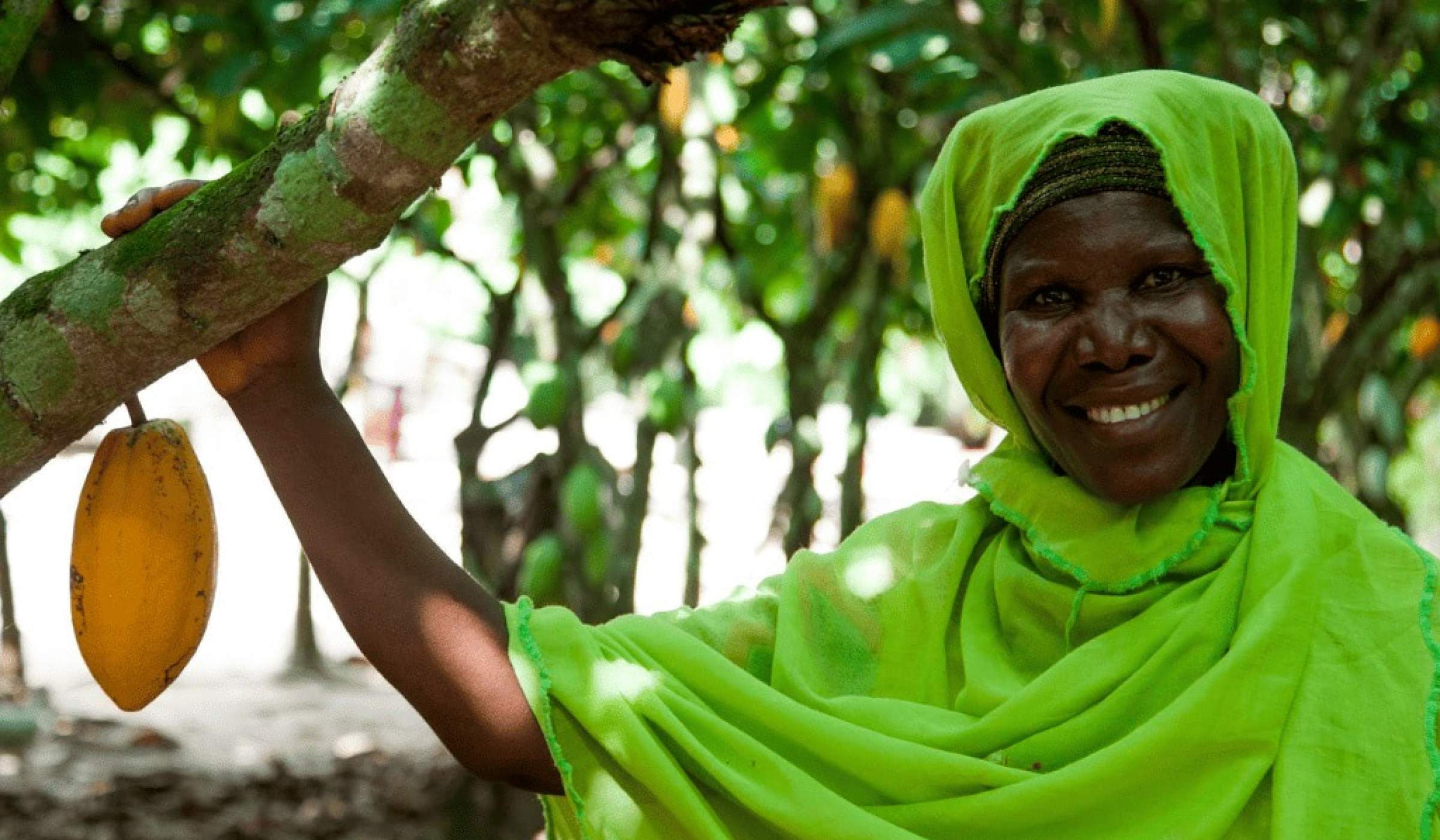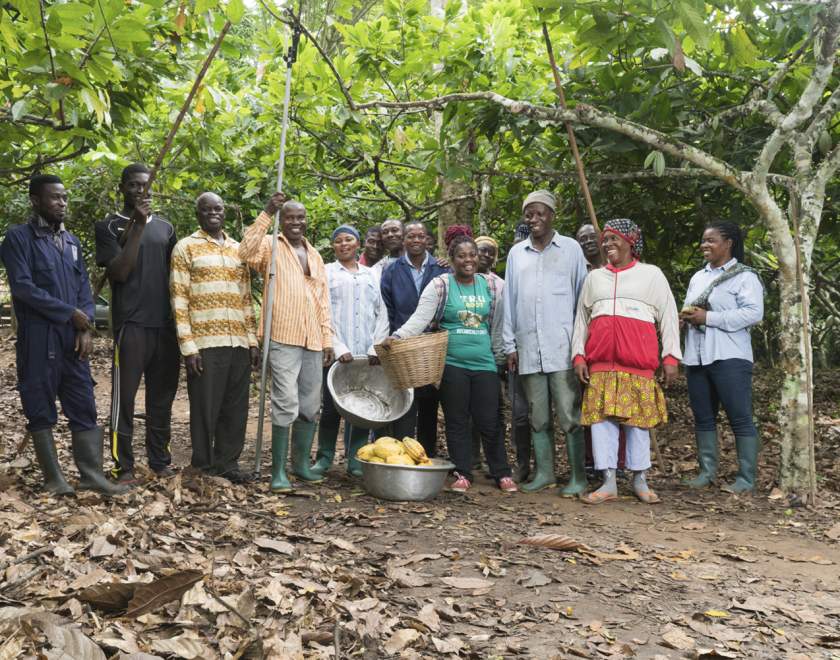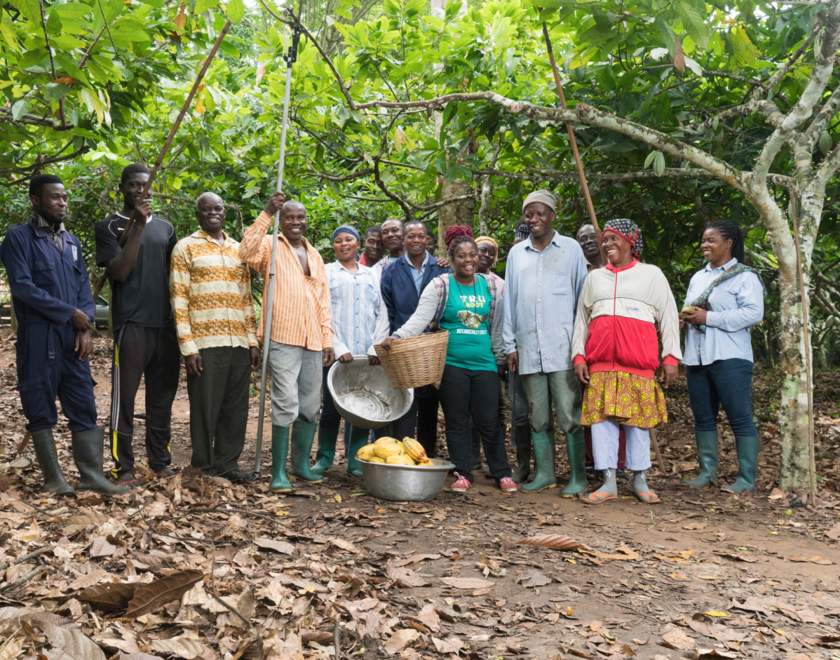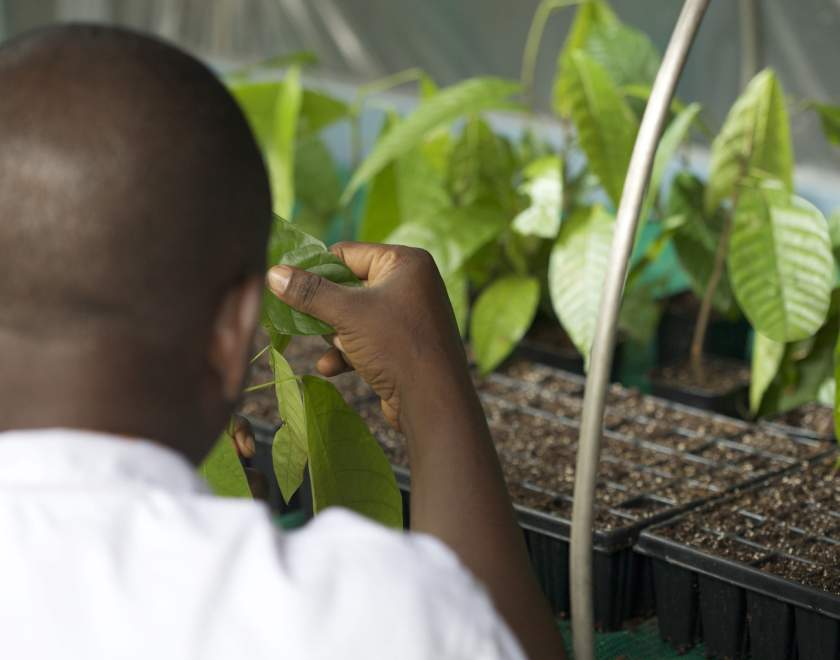
In June 2023, ECOM published our Cocoa Sustainability Report.
The annual report highlights our commitments towards an ethical and environmental cocoa supply chain. As global demand for sustainable and responsibly sourced cocoa increases, we continue to invest and work towards achieving traceable and sustainable supply chains along with our partners." We do this through our internal strategy called the Smarter Cocoa Charter that was published in 2022. With it, we have time-bound and quantitative KPIs and targets to guide our sustainability journey, while showcasing our innovative on-the-ground operations and sustainability programmes to help our customers and farming communities worldwide.
The Smarter Cocoa Charter has three key objectives. We seek to (i) improve farmer and worker livelihoods; (ii) protect and regenerate nature; and (iii) manage change through transparency and traceability. Working closely with cocoa farmers has allowed us to monitor and understand the challenges that they face. For us at ECOM, the wellbeing of the farmers in our supply chain, and the adherence to global standards in the cocoa industry is of core importance to who we are and how we operate.
ECOM Cocoa in context
We are one of the world’s largest cocoa traders and processors, sourcing quality beans from over 25 countries and selling them directly to global chocolate manufacturers and consumer food brands. It is a complex operation and one that comes with large responsibility.
ECOM was a first mover in sustainability starting with coffee supply chains in 2006. Over time our practices have evolved as we better understand the issues faced by all participants in our supply chain. Most recently, our efforts are shaped by consumer-led calls for regulation. Recognizing these public demands, three pieces of legislation have been implemented in the EU: a ban on imports of products made with forced labor; horizontal due diligence on human rights and the environment; and imports/export regulation on deforestation-free cocoa products. The Charter includes goals and targets to address the challenges faced by the cocoa industry and seize opportunities within it to improve it. We continue to leverage it as we collaborate along the value chain on scalable solutions that drive benefits beyond cocoa for farmers and their communities. Our first set of targets has focused on completing assessments and building action plans in order to maintain our origin led ethos and make sure we have the right combination of activities in place for each context.
An example of farmer-focused activities we have been involved in is incentivizing tree adoption in Ghana. ECOM and The Hershey Company have been collaborating to incentivize agroforestry, supplying farmers in Ghana with multi-use shade trees to grow on their plots. The goal is to collaborate with farmers in growing tree species that boost local biodiversity and positively contribute to ecosystems. One of the participating farmers, Seidu Yakubu from the Asankragua district in Ghana, was introduced to the Payment of Ecosystem Services (PES) as well as land tenure systems that address farmer land rights. He received extensive training in GAP, environmental and social practices, and business management.
He shares, “I’m really happy to have this support and I’m looking forward to participating in more initiatives in the future”.
At ECOM, we are looking to reach long-term sustainability. We have been operating for over 170 years, and are proud to be investing into the future. Our proven track record as sustainability pioneers means our customers trust us to deliver their programmes. For ECOM, this evolution represents an opportunity to drive positive impacts for suppliers and cocoa communities, while delivering quality and responsible cocoa for markets.
Link to the ECOM Cocoa Smarter Report 2022.




